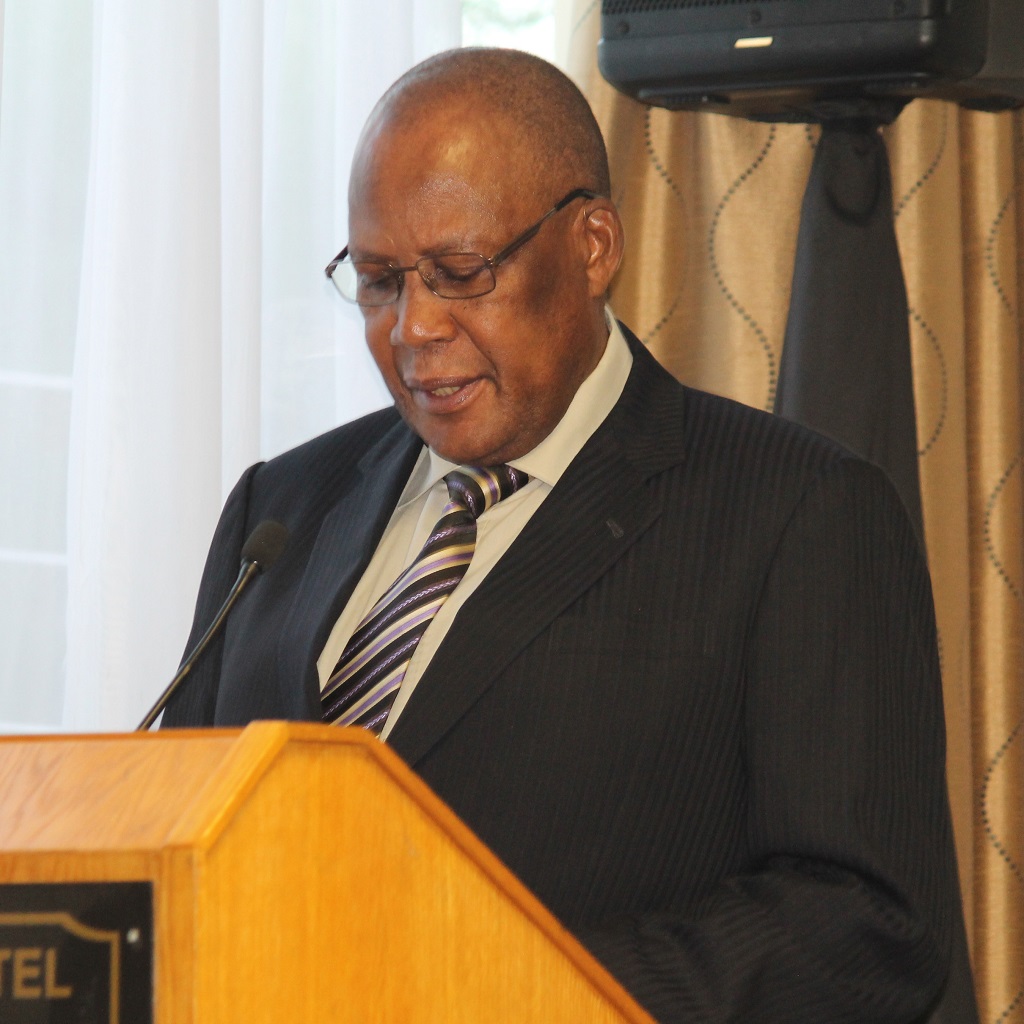
Select Page
As part of continuing initiatives to assist African countries in developing qualified productivity practitioners and trainers, the Asian Productivity Organization (APO) organized a course in Windhoek, Republic of Namibia, 5–14 March 2018. Industrial Human Resources Development for Africa: Training Course on Development of Advanced Productivity Practitioners was conducted under a special cash grant from the Government of Japan and supported by the Productivity Unit of Namibia’s Ministry of Labor and Social Welfare and the Pan African Productivity Association (PAPA).
The opening session of the course was attended by Namibia’s Minister of Labour, Industrial Relations and Employment Creation Erkki Nghimtina, Deputy Minister of Labour, Industrial Relations and Employment Creation Tommy Nambahu, Deputy Head of Mission Rumiko Ishigami of the Embassy of Japan in Namibia, PAPA President David Iigonda, and APO Secretariat Industry Department Program Officer Md. Zainuri Juri.

Namibia’s Minister of Labour, Industrial Relations and Employment Creation Erkki Nghimtina reading a statement by Namibian Prime Minister Saara Kuugongelwa during the opening ceremony of Training Course on Development of Advanced Productivity Practitioners, Nambia, 5 March 2018. Photo: Ministry of Labor, Industrial Relation and Employment Creation.
In a statement read by Minister Nghimtina during the opening ceremony, Namibian Prime Minister Saara Kuugongelwa expressed her appreciation to the Government of Japan and for the joint efforts by the APO, PAPA, and Ministry of Labor, Industrial Relations and Employment Creation in organizing the course. The statement noted that the course was aligned with the Productivity Agenda for Africa, aimed at “increasing the productivity levels of all African countries by mobilizing all relevant stakeholders to work together in promoting a productivity culture among the people, as well as increasing value addition, productivity, and Africa’s competitiveness.”
Prime Minister Kuugongelwa hoped that the course would go a long way in assisting PAPA members to speed up the implementation of the Productivity Agenda for Africa as well as in the promotion of Africa’s Agenda 2063 and other initiatives geared toward achieving inclusive growth and sustainable development.
The 10-day APO course was attended by 28 participants from nine PAPA member countries and designed to develop the capacity of NPOs in formulating productivity strategies to conduct workplace interventions in SMEs, the public sector, and other areas. It also aimed to support PAPA NPOs in developing, adapting, and using effective instructional methods for productivity and quality improvement in their countries. Contents included modules to update trainers on the latest technology trends and prepare them to deal with future productivity challenges. The course was conducted by international APO experts from Malaysia, the Philippines, and Singapore.
During the course, participants had the opportunity to visit Dinapama Manufacturing and Supplies and the Ministry of Labor, Industrial Relations and Employment Creation to observe their operations and make recommendations for improvement in public- and private-sector productivity.
Despite vast resources, the majority of African countries have yet to achieve their full economic potential to transform overall standards of living. Most African economies still rely on capital-intensive extractive outputs, leading to underutilization of capital, limiting overall productivity, and decelerating welfare improvement. Labor transfer from the low-productivity agricultural sector to manufacturing industries that use more capital and technology is a common strategy to overcome this. Unfortunately, the use of that industrial development strategy has been limited in Africa, with a tendency for labor in agriculture to shift to services or small-scale manufacturing rather than to factories.
To maintain sufficient productive human resources and to support the industrialization process in Africa, the APO has been carrying out interventions since 2007 in collaboration with PAPA. This includes a series of training courses for productivity practitioners at both the basic and advanced levels for NPO staff. Those efforts have helped develop a pool of productivity practitioners, although many more are needed.
